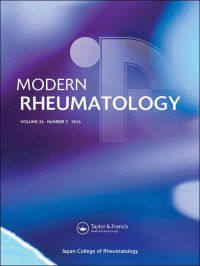-
Views
-
Cite
Cite
Takashi Okamoto, The epigenetic alteration of synovial cell gene expression in rheumatoid arthritis and the roles of nuclear factor κB and Notch signaling pathways, Modern Rheumatology, Volume 15, Issue 2, 1 April 2005, Pages 79–86, https://doi.org/10.3109/s10165-004-0372-8
Close - Share Icon Share
Abstract
Rheumatoid arthritis (RA) is a complex process of chronic and progressive inflammation associated with activation of numerous signaling molecules and transcription factors and hyperproliferation of synoviocytes of the affected joints, although the greater part of its pathophysiological process is explained by activation of nuclear factor κB (NF-κB). For example, the self-perpetuating nature of the rheumatoid inflammation is ascribable to overexpression of the proinflammatory cytokines tumor necrosis factor α and interleukin-1β, known to elicit the activation cascade for NF-κB and activator protein-1 that are responsible for transcriptional induction of these cytokines among other target genes, which conform a positive feedback loop for continuation and expansion of the inflammatory responses. In addition, comparative gene expression profile analyses have revealed activation of a number of genes that explain the “transformed-like” phenotype of synoviocytes. Among the genes expressed in rheumatoid synoviocytes upon inflammatory stimuli, induction of gene expression of Notch proteins and its ligand have been found. Possible roles of Notch signaling in RA synoviocytes are discussed.





